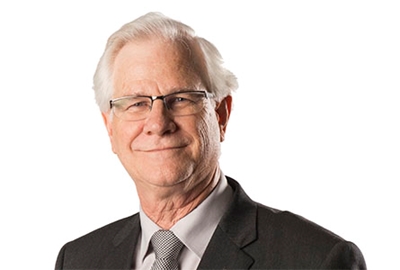Mind of Jacka: Everything There Is to Know
Blogs Mike Jacka, CIA, CPA, CPCU, CLU Dec 07, 2022

Recently, my wife and I had the good fortune to take a trip to New Zealand and Australia. Not being sure when we might visit again, we spent two and a half weeks trying to take in as much as we could see of two very large countries. Suffice to say we only scratched the surface, and it probably resulted in more time on buses and planes than the time spent actually visiting the sights we planned on seeing. (Someone once said, "It's not the destination, but the journey." No surprise, that individual was not on our trip.)
On one of those bus rides, I happened to overhear the conversation of a couple sitting to our left and one row up. (That location will become important shortly.) "Happened" is probably a poor choice of words. I was bored, and I started listening in.
Let's be honest. Once an auditor, always an auditor. And a skill I learned, practiced, and can't seem to drop is paying attention to what is going on around me. It came from the desire to gain a fuller perspective of the way operations were working. Now, a greater portion of the world would simply call it eavesdropping.
But that is not the subject of today's sermon. Allow me to continue.
The couple consisted of a preacher and his wife. They, like my wife and I, were on a two-week excursion. I overheard some details of their trip, as well as some conversations she had over the phone. And I noticed some of what the wife was writing on her iPad. (Again, "noticed" is probably a bit of a misstatement. See the discussion of "eavesdropping" above.)
With all the foregoing, this could easily turn into a blog post about security and how we need to be aware of the information we are sharing with the outside world. I vividly remember the time I was on a flight and a gentleman (same position on the plane — across the aisle and one row up) was working on a presentation regarding his company's upcoming strategy. I could see everything.
But, again, that is not the subject of today's sermon.
As I mentioned, I could see everything she was writing on her iPad. And it was what she was writing that bothered me — what brings me here before you today.
She titled her document "Information About New Zealand" and it looked to be a piece she was putting together as part of the church's newsletter, a bit of humor for Facebook, or a blog post to be read by her millions of followers.
Her list was disturbing. I won't repeat exactly what she typed, but it included a statement about the vehicles driven by New Zealanders, the primary types of couples in New Zealand, and the population's assessment of their prime minister.
In my similarly short time visiting New Zealand, I had seen nothing to support most of her content. In fact, my observations led to conclusions that were the exact opposite of what she conjectured.
It is amazing how quickly we human beings sometimes arrive at our conclusions. Two weeks in a country and I thought I knew a lot about it. Two weeks in a country and the preacher's wife thought she knew a lot about it. And our "thoughts" were, in some instances, diametrically opposed. Further, I'm willing to go out on a limb and say that neither of us knew what we were talking about.
With that in mind, how long do you, as an internal auditor, spend in any operation before completing your assessment, your conclusions, and your reports? One week, two weeks, a month, a day? To the best of my memory, our audit department would complete our work in the field within one or two weeks. When you think how short that time is, how could we really know what we were seeing? How can any auditor really understand what they are seeing?
Of course, our typical response is that our work is objective, based on testing and reviews that adhere to the highest of standards. But when it comes time to get to root causes and solutions, can we really know what is going on in the office/department/process? Can we know the culture, the intrigue, the friends, the enemies, the machinations, or the true intangibles? When we write that controls are effective, ineffective, need improvement, could be a darn-sight better than they are, and when we claim our opinions are based on objective testing sufficient to reach such conclusions — how can we be sure we understand the area under review? How can we truly understand it?
I am not advocating spending more time in any operation or trying to become embedded journalists in the war against poor controls. All I am saying is that we must recognize the restrictions this puts on our work. Recognize that our testing only goes so far. It is why the discussions and interviews we conduct are the real heart of our work. And yet, that heart has a subjectivity that can't always be overcome by the invocation of our professional skepticism.
The only thing I can say for sure about New Zealand is that New Zealanders were some of the friendliest people I've met in a long time. And I can say it is a beautiful country. I want to return.
And the only things we can say for sure about any area we review are based on perceptions we gain during our relatively short time in that area. Those perceptions are as close to reality as we can come, and it is on those that we have to base our work, our understanding, and our conclusions
It doesn't necessarily make them real, but it is all we have. We just have to recognize the limitations.


